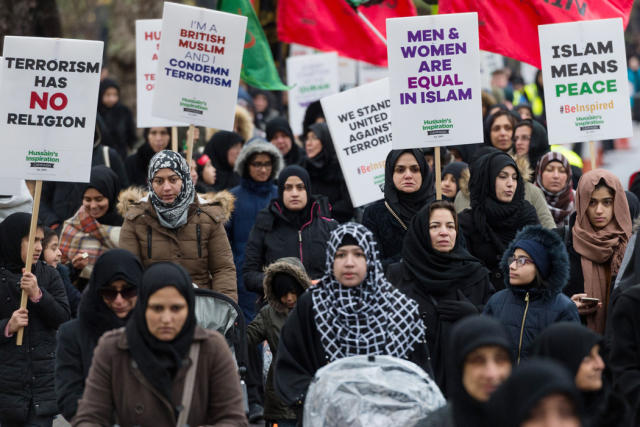“Every single empire in its official discourse has said that it is not like all the others, that its circumstances are special, that it has a mission to enlighten, civilize, bring order and democracy, and that it uses force only as a last resort. And, sadder still, there always is a chorus of willing intellectuals to say calming words about benign or altruistic empires, as if one shouldn’t trust the evidence of one’s eyes watching the destruction and the misery and death brought by the latest mission civilisatrice.”
― Edward W. Said, Orientalism
(The article sheds light on the misportrayal of Muslims and Islam in Western media, highlighting its detrimental impact on the image of the Muslim world, hindering its rightful representation and progress.)
In the global media, particularly within the Western sphere, a prevailing narrative persists when it comes to Islam: one characterized by archaism, repression, and terrorism. This narrative, often perpetuated by prominent outlets such as FOX, CNBC, BBC, and others, not only molds public perception but also plays a pivotal role in shaping geopolitics, especially in regions like the Middle East.
“It is quite common to hear high officials in Washington and elsewhere speak of changing the map of the Middle East, as if ancient societies and myriad peoples can be shaken up like so many peanuts in a jar,” remarked Edward W. Said, shedding light on the hubris inherent in Western attempts to manipulate and drastically change the region per their self-serving interests, removing indigenous identities of Arabs. The origins of this narrative stem from a multitude of factors, encompassing historical biases, geopolitical interests, and the sensationalism that often captivates audiences.
Historical biases form a foundational aspect of the depiction of Islam as archaic and repressive. The enduring legacy of colonialism and Orientalism has fostered a perception of the Muslim world as predominantly backward, necessitating Western enlightenment. This perspective permeates media portrayals, where socio-political realities within Muslim-majority countries are oversimplified and attributed solely to the religion, disregarding contextual complexities.
In recent times, the comparison between ISIS and Hamas often surfaces in Western media narratives, contributing to the oversimplification of complex geopolitical issues. While both groups have engaged in acts of violence, equating them fails to acknowledge their distinct motivations, goals, and methods. ISIS espouses a global jihadist ideology, targeting not only Western interests but also Muslim-majority nations and communities. In contrast, Hamas primarily focuses on resistance against Israeli occupation and the establishment of a Palestinian state.
However, Western media often overlooks these nuances, conflating the two groups and perpetuating the perception of Islam as inherently violent. This portrayal not only stigmatizes Muslims but has also justified military interventions and discriminatory policies against the Palestinians. By critically examining these narratives, it becomes evident that the comparison between ISIS and Hamas serves to justify geopolitical agendas rather than foster genuine understanding or peace.
The geopolitical interests of the Western powers further accentuate the shaping of media narratives on Islam. The US-led alliance often perceives unity among Muslim nations as a potential threat to its interests, particularly in strategically significant regions. By vilifying Islam and depicting Muslim-majority countries as volatile or regressive, the West legitimizes its interventions and endeavors to manipulate regional dynamics to its advantage.
This notion has, hence, led to a standstill as far as normalization or stability in the Middle East is concerned. Underpinning the paralysis is a linchpin of the US’s Middle East foreign policy: Israel is the US’s key security partner in the region, writes Nesrine Malik of the Guardian. “Israel is a bright spot in a tough neighborhood,” posted a Republican presidential candidate on Twitter in early January. “It has never [been] that Israel needs America. It has always been that America needs Israel.”
A conspicuous manifestation of this phenomenon is evident in the recent efforts to foster closer ties between Muslim-majority nations like Saudi Arabia, UAE, Jordan, and Egypt with Israel. Championed by Western powers, this endeavor seeks to align certain nations with the geopolitical aspirations of Washington and Brussels. Implicit in this agenda is the endeavor to impose a liberal interpretation of Islam, tethered to Western values, which inherently contradicts the prevailing interpretation of the religion.
Furthermore, the alignment with Israel serves not only strategic objectives but also ideological ones. By forging alliances with Israel, the US and its allies endeavor to sow divisions among Muslim-majority nations, dichotomizing those compliant with the Western agenda from those in opposition. This stratagem not only perpetuates regional instability but also serves the interests of external powers by perpetuating discord and conflict.
The perpetuation of Islamophobic narratives in Western media not only fosters fear and prejudice but also undermines efforts towards genuine understanding and cooperation between cultures and civilizations. By portraying Islam and Muslims as a perpetual threat, Western media harbors a climate of suspicion and hostility, which hinders meaningful dialogue and cooperation on shared challenges such as global poverty, climate change, and extremism.
In response, thinkers, activists, and leaders must challenge these narratives by promoting alternative perspectives that highlight the diversity, richness, and contributions of Muslim societies and countries to human civilization. By advocating for an accurate and rightful portrayal of Islam and Muslims, they can counteract stereotypes, foster empathy and mutual respect, and promote policies that prioritize justice, equality, and human rights for all. Only through expanding the discourse and challenging entrenched narratives can meaningful progress be achieved toward a more inclusive and equitable world.




